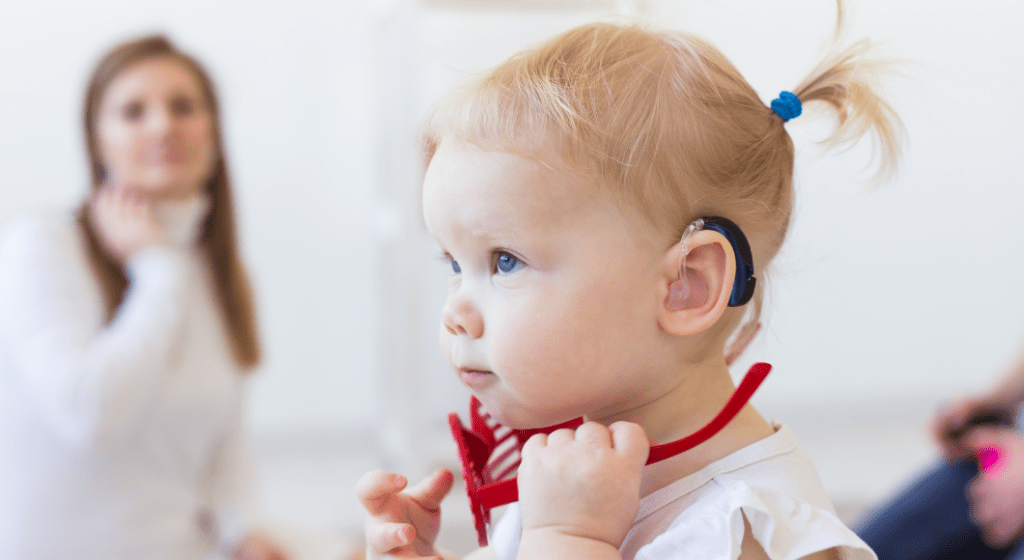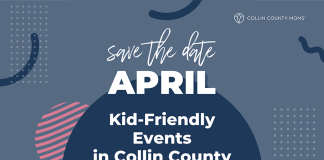 Communication disorders occur in nearly one in 12 children, ages three – 17. This means that about eight percent of children have trouble communicating, forming words, using their voice, hearing accurately, or swallowing.
Communication disorders occur in nearly one in 12 children, ages three – 17. This means that about eight percent of children have trouble communicating, forming words, using their voice, hearing accurately, or swallowing.
If you suspect your child has a speech, language, or hearing delay, do not worry. There is tons of support for communication disorders in Dallas and Collin County, but first let’s understand what they are in the first place.
Read on for more information about the signs of, evaluations, and treatment plans for pediatric speech, language, and hearing disorders.
>> LISTEN :: What It’s Like to Parent a Child with ADHD :: Episode 42 <<
Signs of Speech, Language, and/or Hearing Disorders
The American Speech-Language-Hearing Association (ASHA) outlines communication milestones, which are a metric used to assess the development of healthy speech, language, and hearing in children. When a child does not hit the milestones on time within the first two years, it is considered a sign of a communication disorder. Here are some examples:
- A child does not respond to the call of his or her name by nine months.
- A child says only a few words by 12 – 18 months.
- A child does not use nor understand at least 50 different words for nouns by 19 – 24 months.
- A child does not use or respond to many hand gestures and/or facial expressions.
- An infant or child has a poor quality of voice.
- An infant or child does not respond to sound.
- A child is having trouble with reading and writing.
This is a very brief overview. There are many more indicators that a child may have a speech, language, and or/hearing disorder. Visit ASHA’s website for more information.
>> RECOMMENDED RESOURCE :: Community Calendar of Local Events <<
Getting an Evaluation
If you have concerns about your child’s speech, language, and/or hearing, tell your pediatrician. The sooner the better because early intervention has been shown to make a huge difference. After assessing your child’s behaviors, your pediatrician will refer you to a speech language pathologist (SLP) and/or a pediatric audiologist.

The main sign that led me to get an evaluation of my children was their lack of words at 15 months. My daughter didn’t use any words, and my son used only one or two. Both my kids were referred first to an audiologist. Once their hearing tests came back clear, they were referred to an SLP.
To evaluate at this age, the SLP will sit on the floor and “play” with the child, while making notes of his or her reactions and other means of communication. At the end of my daughter’s evaluation, the SLP said, “She doesn’t have a speech delay; she’s just not talking to you!” The SLP had us stop anticipating our daughter’s needs, and, instead, pause to encourage her to make a sound or use a word. For example, before putting a plate of food in front of her, pause, make eye contact, and ask, “Would you like lunch? Yes? Okay, say, ‘Yes.'” Soon, the words began to flow!
>> RECOMMENDED RESOURCE :: Activities for Kids with Differences and Disabilities in the Collin County Area <<
Treatment Plans
On the other hand, my son needed speech therapy. After eight months of individual speech therapy once or twice a week, the SLP said the results were atypical. She referred us to organizations that provide intensive group speech therapy for kids. Who knew such a thing existed?
Group speech therapy is structured like a preschool program taught by licensed SLPs. The programs we have participated in have occurred four mornings per week for two to three hours. They have a small class size, and each child is paired with a graduate-school intern from the University of Texas.

Working with Social Communication Connection (Dallas County) and the Callier Center for Communication Disorders (Dallas and Richardson), we learned that my son is a gestalt language processor. This means that he learns language in phrases, and then learns how to break those phrases down into single words. This is opposite of the typical single-words-to-phrases style of language acquisition. This approach to language acquisition takes much longer and is aided significantly by therapy.
>> WATCH :: Collin County Moms Connection :: Common Questions About Your Child’s Speech :: Episode 3 <<
The Bottom Line
It can be scary when your child exhibits atypical speech, language, and/or hearing behaviors, but there are people who will help you and your child gain the tools to succeed. My son continues to receive services, and has gone from one- and two-word sentences to seven- and eight-word sentences. His ability to communicate has exploded! If you have any concerns about your child’s ability to speak, communicate, hear, or swallow, talk to your pediatrician.













